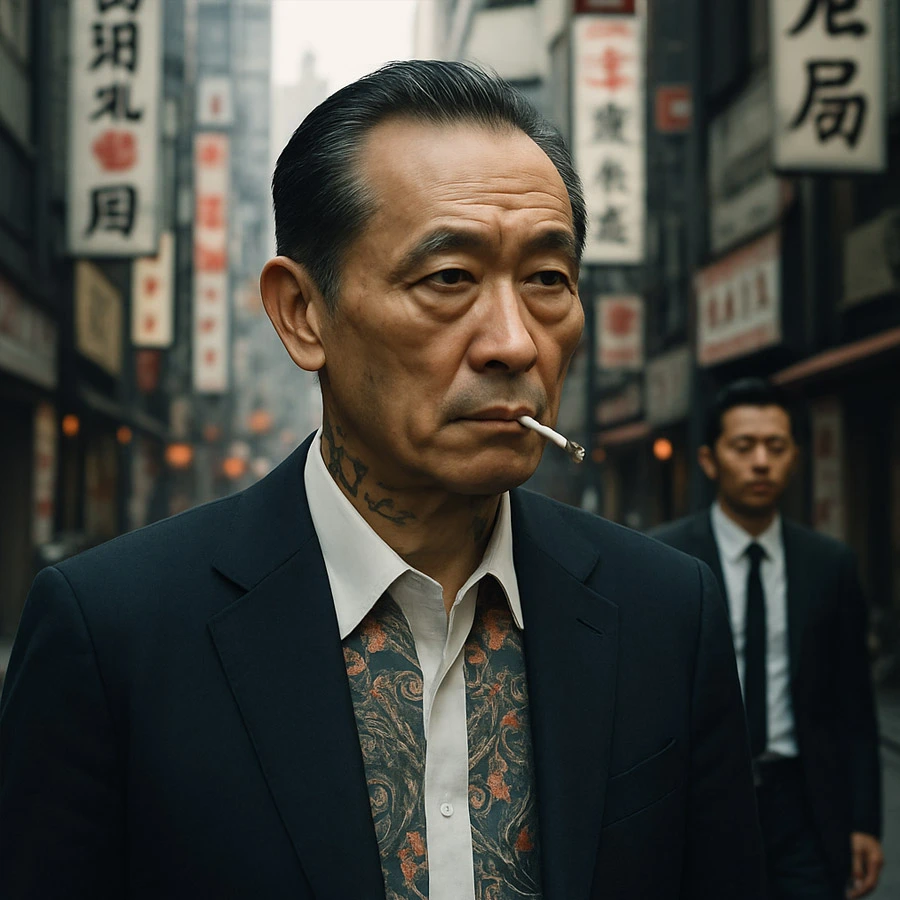When you think of the Yakuza, the image that probably comes to mind is a group of intimidating gangsters covered in tattoos, with steely eyes and a ruthless reputation. But behind this cinematic stereotype lies something far more complex—a financial empire with billions in turnover, deeply embedded in Japan’s economy and business world.
Roots in Feudal Japan: From Card Sharps to Shadow Lords
The history of the Yakuza goes way back to Japan’s Edo period (1603–1868). Back then, Japan was mostly closed off from the rest of the world, and society was tightly controlled. The Yakuza originally formed as a loose alliance between street merchants and card dealers—outsiders and gamblers on the fringes. Their name comes from a losing hand in a traditional card game: the numbers 8-9-3 (“ya-ku-za” in Japanese), symbolizing something worthless or a failure.
What started as a marginalized bunch gradually evolved into a powerful criminal organization, and today there are roughly 20 major Yakuza groups controlling significant resources and wielding real influence.
A Family Business Built on Feudal Loyalty
The Yakuza are much more than just gangs. They preserve a strict feudal hierarchy called “oyabun-kobun”, meaning “parent-child.” This system demands absolute loyalty and obedience, much like samurai serving their feudal lords.
Despite the violent image popularized by movies, the real power of the Yakuza emerged during Japan’s economic boom in the second half of the 20th century. It was then that they transformed into what’s called “keizai yakuza” — economic gangsters, moving beyond street crime into stocks, finance, and big business.
Mafia Builders: The Yakuza’s Grip on Industry
Today, the Yakuza control hundreds of construction companies and manage multibillion-dollar assets. They have skillfully integrated themselves into legitimate businesses, influencing major contracts, real estate developments, and investment funds. Their presence in Japan’s construction industry is so extensive that they are often key players behind the scenes.
Interestingly, despite their criminal roots, the Yakuza work hard to maintain a public image as “noble outlaws.” After natural disasters like earthquakes and tsunamis, they actively provide humanitarian aid—delivering supplies, organizing relief efforts, and helping rebuild communities. This not only boosts their social standing but also extends their influence.
The Yakuza Today: A Shadow Force You Can’t Ignore
Digging into the world of the Yakuza reveals that they’re not just criminals—they’re political and economic giants walking the fine line between legality and crime. Their ability to build sprawling influence networks in Japan’s economy is impressive, forcing a reconsideration of what organized crime really means.
For millions around the world, the Yakuza stand as an example of how power and money can fuse into a system where even the most ruthless and marginalized find ways not just to survive but to thrive and shape a nation’s destiny.
So next time you think of the mafia as just chaos and violence, take a closer look at the Yakuza. They offer a masterclass in survival and adaptation, where cold calculation and business savvy are just as deadly as any weapon.


















